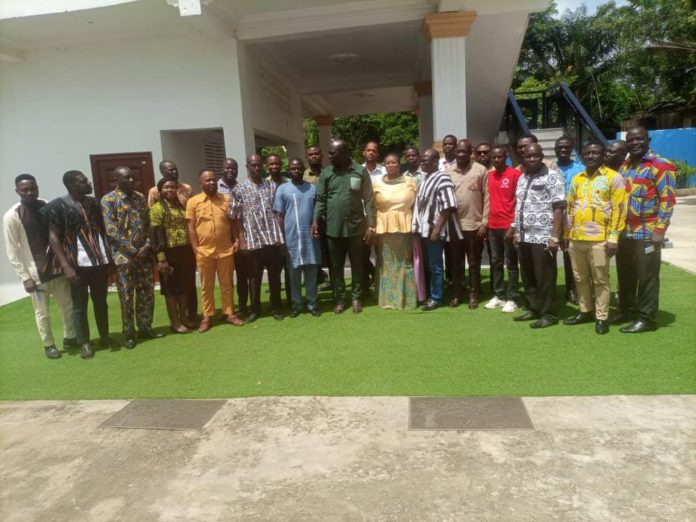The Ghana Statistical Service (GSS) has taken a proactive step in addressing the issue of multidimensional poverty by organising a two-day training workshop for journalists and local government workers in the Oti Region.
Multidimensional poverty is a concept that goes beyond traditional measures of poverty, such as income levels, to include other factors such as access to education, healthcare, and basic services.
By addressing these multiple dimensions of poverty, policymakers and stakeholders can develop more comprehensive and effective strategies to alleviate poverty and improve the well-being of communities.
The targeted group of the training include the Municipal Planning and Coordinating Unit, Development Partners Civil Society Organization (CSOs), the private Sector, Research Institutions Academia, Religious Organizations, Traditional Rulers, Media Practitioners and the general public.
Speaking at the programme, the Regional Director of the GSS in Oti Region, Henry Loglo emphasized the importance of understanding multidimensional poverty, which goes beyond just income levels to include factors such as access to education, healthcare, and basic services.
He highlighted the need for journalists and Local Government workers to have a comprehensive understanding of poverty in order to develop effective strategies for poverty reduction.
Mr Loglo took participants through session of training where they were taught how to use data and statistics to identify areas of high poverty prevalence and develop targeted interventions to alleviate poverty that is linked to Sustainable Development Goals (SDGs) targeted at the sub-national level in line with the national development plan.
He revealed that, the GSS will continue to work with journalists and Local Government workers in the Oti Region to build their capacity in reporting on multidimensional poverty and advocating for policies that promote sustainable development and poverty alleviation.
The Oti Regional Minister DSP Daniel Machator (rtd) hope that the training session will help Local Government workers to prioritize poverty reduction efforts in their work.
He believes data and statistics identify areas of high poverty prevalence and develop targeted interventions to alleviate poverty in the region.
He encouraged participants to use the knowledge acquire from the training to highlight the challenges faced by the poor and advocate for policies that promote inclusive growth and development.
Some of the participants expressed gratitude for the opportunity to learn more about multidimensional poverty and skills they need to address poverty in a comprehensive effect.
ALSO READ:


